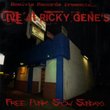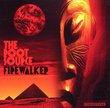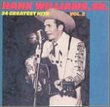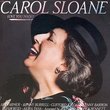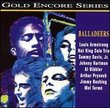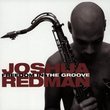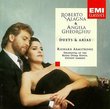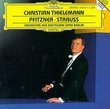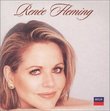| All Artists: Vincenzo Bellini, Giuseppe Verdi, Giacomo Puccini, Orchestra e coro del Teatro alla Scala, Tullio Serafin, Herbert von Karajan, Norberto Mola, Victor De Sabata, Maria Callas, Giuseppe di Stefano, Renato Ercolani, Carlo Forti, Giuse Gerbino, Dario Caselli, Angelo Mercuriali Title: Maria Callas & Giuseppe di Stefano - Italian Opera Duets Members Wishing: 0 Total Copies: 0 Label: EMI Classics Release Date: 10/25/1990 Genre: Classical Styles: Opera & Classical Vocal, Historical Periods, Modern, 20th, & 21st Century Number of Discs: 1 SwapaCD Credits: 1 UPCs: 077776954325, 077776954325 |
Search - Vincenzo Bellini, Giuseppe Verdi, Giacomo Puccini :: Maria Callas & Giuseppe di Stefano - Italian Opera Duets
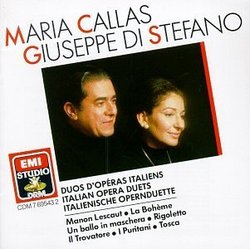 | Vincenzo Bellini, Giuseppe Verdi, Giacomo Puccini Maria Callas & Giuseppe di Stefano - Italian Opera Duets Genre: Classical
No Description Available. Genre: Classical Music Media Format: Compact Disk Rating: Release Date: 3-AUG-1988 |
Larger Image |
CD DetailsSynopsis
Product Description No Description Available. Genre: Classical Music Media Format: Compact Disk Rating: Release Date: 3-AUG-1988 Similar CDs
Similarly Requested CDs
|
CD ReviewsWhy do people degrade these wonderful artists? Andrew Hillier | Melbourne, AUSTRALIA | 12/19/2001 (4 out of 5 stars) "There is no doubt that music connects in a very special way to ones emotions. Although these responses make us keep returning to the record store or concert hall, they can also pave the path towards dangerous thinking. More often than not, when we are required to comment on musical matters, we tend to regard our conclusions as concrete - a kind of authority on what is 'good' about a performance or composition, and what is 'bad'. This response is more than likely the manifestation of a lifetime of listening or, if one is fortunate enough, performing. When confronted with such individual and famous artists as Callas and Di Stefano however, it seems that the gloves inevitably come off. It is hurtful to see such criticism. These great artists do not deserve to be treated with such disrespect. It is fair to say that both artists had faults, as we all do. However, it is certainly not fair to exploit their faults to the extent of downright abuse. One must be objective. Due to their fame, it could be argued that they must have been doing something right. Furthermore, it can be said without argument that they inspired many generations of opera lovers to buy records and maintain an interest in the art form.It would be hard to find any other two artists that, when in peak form, had a direct line to the listeners heart. Both of them had accurate Italian diction and even if you are not fluent in Italian, their singing can often translate the words for you. Just listen to the beginning of 'O dolci mani' from Tosca. I would doubt if anyone, due to Di Stefano's immaculate vocal colouring, felt they did not understand the word 'dolci'.The Tosca excerpts come from a recording that is generally hailed as one of the great recording achievements. The Boheme excerpts only represent part of their unbelievable complete recording. For even greater impact, try the complete set for a chillingly interpreted last two acts. The Rigoletto excerpts show a brilliant concern for dramatic detail. Listen to the passion in Di Stefano's voice during 'E il sol dell'anima'. The Manon Lescaut excerpts are taken from an early EMI recording that really shows what great and unique artists they were. With great passion throughout, they interact perfectly, producing a golden flow of Italian colouring.The Bellini excerpts unfortunately do not show Di Stefano in prime form, mainly due to the fact that the tessitura sits a little too high in the voice for him. Though Callas sings with superb artistry in one of her early recordings.True, these artists had faults, many of which can be heard in this recording. Though, they merely add to the individuality of the artist (were dealing with two very strong personalities here!). Our incessant focus on the faults of an artist will only transfigure two of the greatest artists of the century, who were capable of producing some of the most glorious sounds ever heard." Callas & di Stefano cij | U.S.A | 01/12/2006 (5 out of 5 stars) "I think Callas sang her best when singing with di Stefano - their voices seem made for each other - they blend beautifully (I've heard that Callas sang with Jon Vickers - I'd like to hear that someday). Both Callas and di Stefano are passionate singers and these duets are perfect for their voices, in my opinion. Callas' voice is almost strident at times (which accounts for the incredible emotion she could bring to operatic songs) but di Stefano's voice seems to balance the sound out. I enjoy di Stefano very much - and when I hear him I always wonder if Domingo patterned his voice after di Stefano's. Another great CD worth having in one's collection!" Ernesto,you are an Idiot. cij | 06/25/2004 (5 out of 5 stars) "The three tenors today all studied di Stefano's technic and they all acknowledged him as being the best.See Jose Carerras.Before writing another review,I would suggest that you break the Prozac in half. Fratello"
|

 Track Listings (20) - Disc #1
Track Listings (20) - Disc #1
